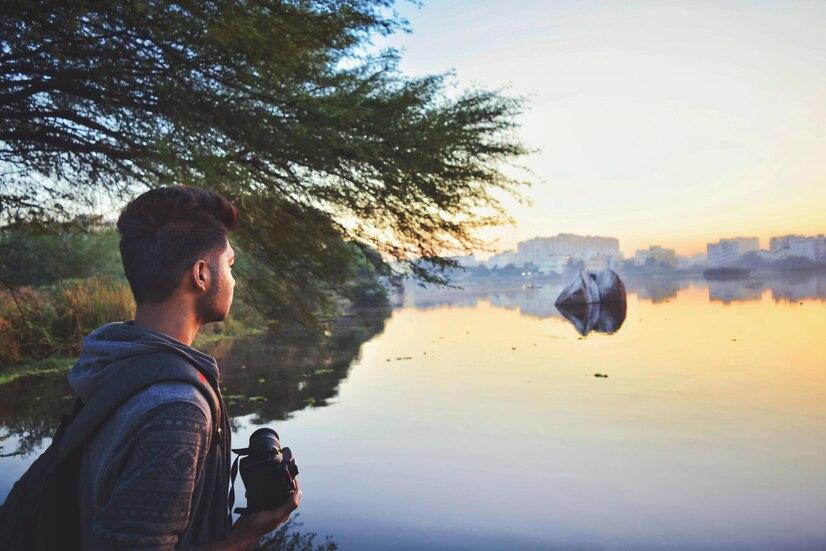



Table of Contents
- Introduction
- Historical Significance
- Biodiversity and Recreational Activities
- Accessibility
- Current Challenges
- Future Prospects
- Conclusion
- Faq's
Introduction
Madiwala Lake, located in the bustling southern part of Bangalore, is one of the city's largest and oldest lakes, spanning approximately 114.3 hectares (or about 272 acres). This historical waterbody dates back over 300 years, originally constructed during the Chola Dynasty. The lake was named after the local washermen, known as 'madiwalas', who utilized its waters for their trade.
Historically, Madiwala Lake served as a vital source of water for nearby communities and played a significant role in the local economy through activities such as fishing and washing. Over the years, however, rapid urbanization has led to significant degradation of the lake's ecosystem. Pollution and encroachment have severely impacted its health, prompting restoration efforts to revive its ecological balance.
In 2008, a major initiative by the Karnataka State Forest Department aimed to rejuvenate the lake, focusing on cleaning its waters and restoring its natural habitat. Today, Madiwala Lake stands not only as a testament to Bangalore's rich history but also as a critical resource for biodiversity and recreation, attracting nature lovers and tourists alike who seek solace in its serene environment amidst the urban chaos.
 BTM Lake. Bengaluru, Pinterest
BTM Lake. Bengaluru, Pinterest
Historical Significance
The historical significance of Madiwala Lake extends beyond its age; it reflects the evolution of Bangalore from a quaint settlement to a sprawling metropolis. Originally constructed to support agricultural activities and provide water for domestic use, the lake was integral to sustaining local livelihoods. During the Chola Dynasty, it was part of a network of water bodies that facilitated irrigation and supported farming communities in the surrounding areas.
Over time, as Bangalore grew, Madiwala Lake became a hub for various economic activities, including fishing and washing. However, with urban expansion in recent decades, the lake has faced numerous challenges. Industrialization and population growth have led to increased pollution levels, with untreated sewage and waste being dumped into its waters.
The once-clear waters have become murky, affecting aquatic life and diminishing the lake's aesthetic appeal. Recognizing these issues, local authorities initiated restoration projects aimed at reviving the lake's ecosystem. These efforts included desilting operations, planting native vegetation along the banks, and creating awareness about conservation among local communities.
The historical journey of Madiwala Lake serves as a reminder of the delicate balance between urban development and environmental preservation.
Biodiversity and Recreational Activities
 Madiwala Lake is famous among Photographers
Madiwala Lake is famous among Photographers
Madiwala Lake is renowned for its rich biodiversity, providing habitat for numerous species of flora and fauna. The lake supports various ecosystems that are home to migratory birds such as herons, egrets, kingfishers, and even pelicans during certain seasons. Birdwatchers flock to this serene environment to observe these avian species in their natural habitat. Additionally, the surrounding greenery contributes to the overall biodiversity of the area, with many native plants thriving along the banks of the lake.
Recreational activities at Madiwala Lake are diverse and cater to both nature enthusiasts and casual visitors. Well-maintained pathways around the lake encourage leisurely walks or jogging sessions while providing stunning views of the water body. Boating facilities allow visitors to explore the lake from a unique vantage point; pedal boats and rowboats can be rented during operational hours from 10 AM to 6:30 PM.
Photography enthusiasts find ample opportunities to capture breathtaking sunsets reflecting off the water's surface or candid shots of birds in flight. Families often visit for picnics or simply to enjoy a day out in nature away from the hustle and bustle of city life. The combination of biodiversity and recreational offerings makes Madiwala Lake a cherished destination for both locals and tourists.
Accessibility
Accessibility is one of Madiwala Lake's key advantages, making it an attractive destination for both residents and visitors alike. Located near Madiwala Market one of Bangalore's busiest commercial hubs the lake is easily reachable through various modes of transportation.
For those opting for public transport, the nearest metro station is Madiwala Metro Station on the Purple Line, which connects commuters to other parts of Bangalore efficiently. Buses are another convenient option; multiple routes service this area frequently throughout the day.
For visitors arriving by air, Kempegowda International Airport is situated approximately 40 kilometers away from Madiwala Lake. From there, travelers can hire cabs or utilize shuttle services that operate regularly between the airport and different parts of Bangalore city center.
Additionally, Bangalore City Junction railway station serves as a major transit point for those traveling by train; cabs or buses can be used to reach Madiwala Lake from this central location easily. The strategic location combined with accessible transportation options makes it feasible for anyone interested in experiencing this natural oasis amidst Bangalore's urban landscape.
Current Challenges
Despite its natural beauty and recreational offerings, Madiwala Lake faces significant challenges that threaten its ecological balance and overall health. Pollution remains one of the most pressing issues facing this vital waterbody; urban runoff containing plastic waste, chemicals from nearby industries, and untreated sewage has severely degraded water quality over time.
Studies conducted on water samples have indicated high levels of microbial contamination that pose risks not only to aquatic life but also to public health for those engaging in recreational activities around the lake. Maintenance issues have also come under scrutiny since management was transferred to Bruhat Bengaluru Mahanagara Palike (BBMP).
Visitors frequently report overflowing garbage bins along pathways, littered walkways filled with plastic waste, and inadequate restroom facilities that detract from their experience at this once-pristine location. Furthermore, environmental degradation due to encroachment has led to illegal dumping practices that threaten biodiversity within this ecosystem .
Addressing these challenges requires concerted efforts from local authorities alongside community engagement initiatives aimed at fostering responsible stewardship among residents who frequent Madiwala Lake.
Future Prospects
Looking ahead, there is hope for Madiwala Lake as local authorities recognize its ecological significance and have begun planning comprehensive development projects aimed at restoring its health. The Bruhat Bengaluru Mahanagara Palike (BBMP) has announced initiatives focused on cleaning up pollution sources while enhancing infrastructure around the lake area for better visitor experience .
A budget allocation of approximately Rs 15 crore has been set aside under grants from the 15th Finance Commission specifically for these restoration efforts . Proposed actions include removing silt buildup within the lakebed which contributes significantly to reduced water quality; improving surrounding infrastructure such as pathways; increasing greenery by planting native species along banks; installing proper waste disposal systems; creating awareness campaigns targeting local communities about conservation practices; ensuring regular maintenance checks are conducted post-restoration efforts.
Local environmentalists emphasise that any future development must prioritize sustainable practices over mere beautification projects if long-term ecological balance is desired . Engaging community members through educational programs can foster a sense of ownership among residents regarding their role in preserving this natural resource. With dedication from both authorities and citizens alike,Madiwala Lake has potential not just as an urban oasis but also as an enduring symbol of Bangalore's commitment towards environmental sustainability.
Conclusion
In conclusion, Madiwala Lake remains a cherished natural asset within Bangalore offering both recreational opportunities alongside ecological significance . Its historical journey reflects broader themes surrounding urbanisation while highlighting challenges faced by many similar ecosystems around India today .
As we navigate increasing pressures on our environment due largely to rapid development , it becomes imperative that we take decisive action towards preserving such vital resources like Madiwala Lake.
Through collaborative efforts involving local authorities , environmentalists ,and engaged citizens alike , there exists immense potential not only for revitalizing this historic waterbody but also ensuring it thrives sustainably well into future generations .
By prioritising conservation over exploitation , we can safeguard not just Madiwala Lake's legacy but also contribute positively towards enhancing overall quality life within our vibrant cityscape.
explore further
Latest from Editorials
More from Publications
Resources
Dwello, for every home buyer, is a way to go from 'I feel' to 'I know', at no extra cost.




